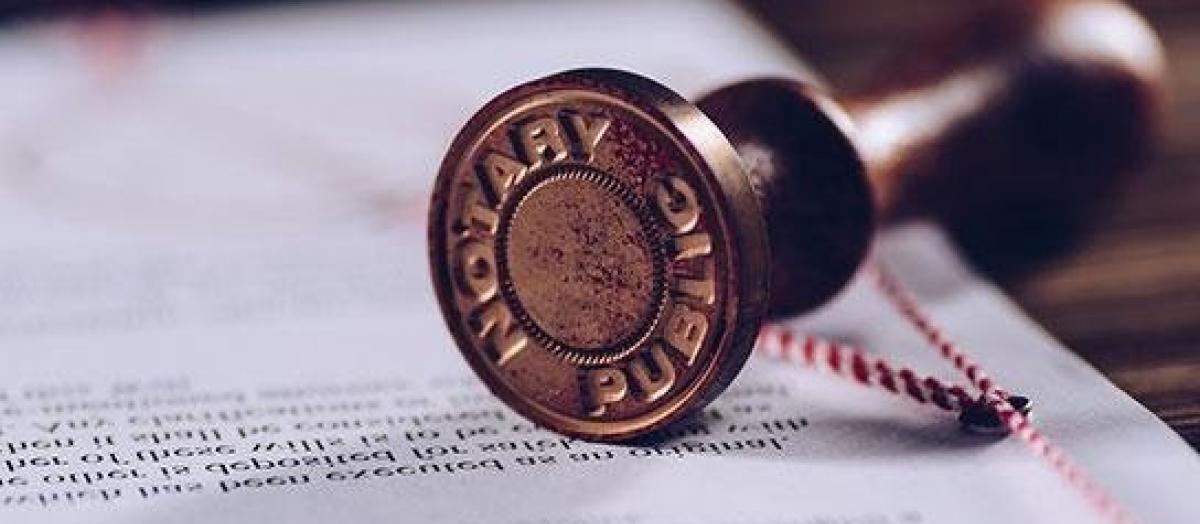Qualified Notary Services: Guaranteeing Lawful Credibility and Protection
Qualified Notary Services: Guaranteeing Lawful Credibility and Protection
Blog Article
Debunking Notarial Job: Simplifying the Function and Importance of Notaries
Their function, usually shrouded in enigma for several, lugs considerable weight in making sure the validity and integrity of crucial documents. By unraveling the intricacies shedding and bordering notarial methods light on the significance of their acts, a clearer understanding arises of the crucial function notaries play in upholding the fabric of contractual and lawful contracts.
The History of Notarial Job
Exactly how did notarial work advance in time to come to be an important part of legal and service deals? The background of notarial work dates back to ancient worlds, where scribes played an essential role in videotaping essential information and confirming documents. As societies progressed, the need for a more formalized system to make sure the credibility of agreements arose. This resulted in the development of notaries, individuals appointed by the state to act as neutral witnesses in legal matters.
Throughout the Center Ages, notaries acquired prestige in Europe, with their functions broadening to consist of drafting lawful records, certifying trademarks, and maintaining records. The rise of worldwide trade additionally emphasized the significance of notarial operate in validating contracts and agreements throughout borders.
In the contemporary age, notaries remain to play an important duty in lawful and business transactions by confirming identifications, confirming the authenticity of documents, and stopping scams. Their role in accrediting the legitimacy of arrangements includes a layer of protection and trust fund to the ever-evolving landscape of business and regulation.

Responsibilities and Responsibilities of Notaries
Notaries play an essential role in confirming the authenticity of papers and the identification of signatories. One of their key responsibilities is to witness the finalizing of important papers, such as deeds, wills, and contracts, to guarantee that all events are entering right into agreements knowingly and willingly.
Moreover, notaries are charged with carrying out vows and affirmations, which are essential in lawful proceedings and the implementation of affidavits. They accredit copies of original files, supplying assurance to organizations that the duplicates hold true replicas of the originals. Notaries need to maintain exact documents of all transactions they manage to ensure openness and liability. In general, the responsibilities and obligations of notaries are important in securing the stability and validity of various records and purchases.
Notarial Certificates and Signatures
Exemplifying meticulous interest to detail, notarial certificates and signatures work as crucial components in verifying the authenticity of lawful papers. Notarial certifications usually include essential information such as the day of notarization, the names of the signatories, a summary of the file, and the notary's official seal. These certifications offer a clear document of the notarial act, making certain that the paper can be easily recognized and traced back to the notary that looked after the process.
Trademarks play an essential function in notarial job, as they symbolize the agreement and consent of the celebrations involved. Notaries meticulously witness the finalizing of documents to confirm the identity of the signatures and verify that they are signing of their own free choice. By fastening their official seal and trademark to the paper, notaries accredit that the required procedures have been adhered to and that the file is legitimate and enforceable.
Fundamentally, notarial certifications and signatures are the hallmark of authenticity in legal deals, supplying assurance to all events involved that the papers are legitimate and binding.
Value of Notarial Acts

Registration Refine Explained
Clarifying the notarization process supplies clearness on the necessary steps associated with verifying lawful files. The notarization process generally begins with the private presenting the paper to a notary public. The notary after that confirms the endorser's identification with acceptable identification methods. As soon as the identification is verified, the notary makes sure that the private signing the record does so voluntarily and with no browbeating.

Verdict

Notarial certifications typically consist of crucial info such as the day of registration, the names of the signatories, a description of the file, and the notary's main seal. These certifications give a clear record of the notarial act, guaranteeing that the paper can be conveniently identified and traced back to the notary who managed the procedure.
By fastening their main seal and trademark to the document, notaries certify that the required procedures have actually been adhered to and that the document is valid and enforceable.
By verifying the identity of the signatories, confirming their determination to enter into the contract, and accrediting the day and place of the signing, notaries play a critical duty in promoting the legitimacy of lawful news papers.After the paper is authorized, the notary will certainly fasten their main seal or stamp onto the document.
Report this page